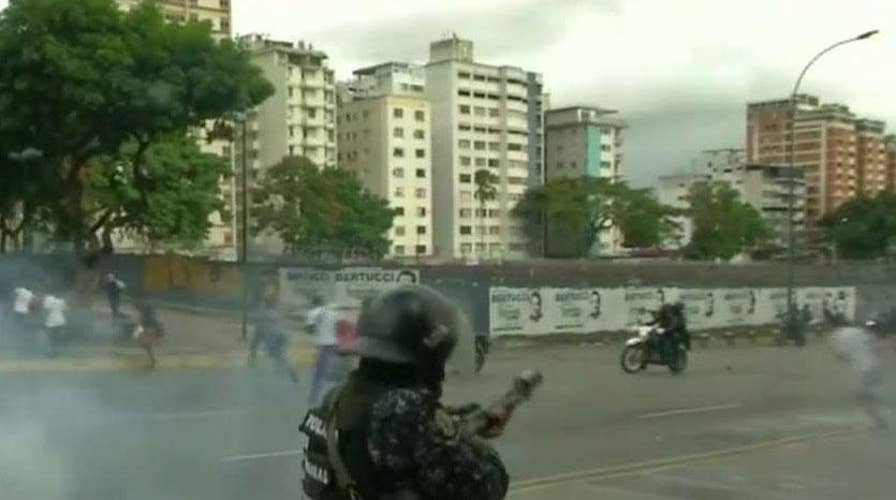Is there a chance for a peaceful transfer of power in Venezuela? Maduro ousted as president
Former senior foreign policy adviser to President Bill Clinton says that the Trump administration needs to focus on supporting the Venezuelan opposition.
The Trump administration’s announcement Wednesday to recognize Venezuelan National Assembly leader Juan Guaidó as interim president of Venezuela amid the current popular uprising against the anti-democratic socialist Maduro regime was an act of brilliant statecraft.
The move has been followed by an international coalition of other countries including Canada and almost all South American countries. Meanwhile, Maduro has threatened to expel U.S. diplomats (a power which he no longer has in the eyes of the U.S. and its allies). Between sham elections and ruining Venezuela's once prosperous economy, Maduro embodies the worst qualities of a socialist dictator. Taking over from socialist revolutionary Hugo Chavez after his death in 2013, Maduro continued the same legacy of intense Bolivarian socialism.
AS VENEZUELA CRISIS DEEPENS, US EMBASSY FACES SECURITY CRISIS
The Chavez-Maduro socialist experiment has been an economic failure in almost every way.
Since the Chávez-Maduro regime took power and influenced its central bank to print money, Venezuela has achieved the world’s highest inflation rate. The International Monetary Fund estimates that inflation in the country has nearly reached 1 million percent, a hyperinflation level seen in Germany in 1923 and Zimbabwe a decade ago, when governments similarly used their central bank to print money to monetize significant levels of government debt. Many vendors in Venezuela no longer accept bolivars, the nation’s currency, which has correspondingly seen its value erased relative to other world currencies. One U.S. dollar is now estimated to be worth approximately 2.5 million bolivars in the currency’s black market. By comparison, the dollar was worth 2.5 bolivars in as recent as 2006.
The economic growth picture in Venezuela is similarly horrifying as the Chávez-Maduro regime nationalized much of the country’s economic sectors including oil, agricultural, finance, industrials, mining, telecommunications and power. The IMF estimates that GDP is expected to have fallen by 18 percent in 2018, the third year of consecutive double-digit negative growth, tantamount to an economic depression rarely seen in history, especially in modern times.
There was a time during the last century when Venezuela, rich in oil and other resources, was the most prosperous South American country and a popular tourist destination for international travelers. That now seems a distant memory.
In total, real GDP per capita has fallen by 46 percent since 2013. Meanwhile, neighboring countries embracing democratic free-market capitalism like Colombia and Panama are currently experiencing GDP growth from 2 percent to 4 percent.
REP. ILHAN OMAR FACES BACKLASH FOR CLAIMING TRUMP BACKS 'COUP' IN VENEZUELA
The Chavez-Maduro regime introduced price controls on food items and currency controls that prevented importers from using U.S. dollars, which ultimately created massive shortages of food. Thousands of Venezuelans now suffer from hunger and malnutrition. Many, including children, have died.
Crime is also rampant in Venezuela with little rule of law and massive state-controlled corruption. An estimated 870,000 Venezuelan refugees have fled to neighboring Colombia.
Until now, the world has largely sat by as the horrors of the Chávez-Maduro regime have transpired.
CLICK HERE TO GET THE FOX NEWS APP
Thanks to the U.S.-led coalition endorsing Juan Guaidó as interim president, Venezuelans now have hope for a new leader who has promised to host free and fair elections, embodying a return to democracy for the country. Venezuela’s path back to a market-based economy will be critical to restoring its prosperity. President Trump, with the support of many in Congress (like senators Marco Rubio and Rick Scott), has played a critical role in helping to move the country in that direction by creating hope for the restoration of economic and political freedom.

